War stories with giant robots and a dash of racism are pretty common in anime. You have everything from classics like Code Geass, Gundam and Gurenn Lagann (depending on how you define “classic”) to the more cult-hit works like Muv-Luv and uh… Gunbuster? Can you tell I don’t watch much mecha? Regardless this year sees a new show try its hand: 86: Eighty Six. A Light Novel adaptation written by Asato Asato, created by A-1 Pictures and Directed by Toshimasa Ishii, Eighty Six looks to take an existing idea and perfect it. And judging by all the press and the reactions I’ve seen in the community it appears to have done just that. But does it deserve the praise and accolades it has been receiving? Let’s find out!
Be warned, this review contains minor unmarked spoilers for Eighty Six. It also contains major spoilers in some sections however these will be heavily marked to avoid accidents.
Visuals
To say that Eighty Six is a good looking show would be an understatement. It is, in my humble opinion, the best looking show of the Spring 2021 season. Not in animation or CGI, though we will talk about those later, but in terms of editing, shot composition and overall direction Eighty Six is second to none. From raindrops hitting leaves in time with the music to smash cuts of an object breaking to a characters face. Gunshots to scenic views, positioning characters in specific ways, blocking a scene so two characters within 5 feet of each other feel miles apart. These may sound like basic techniques, and some are, yet many anime can’t even accomplish shot-reverse-shot. For his TV debut Director Toshimasa Ishii has done something incredible. The way he matches music and movement to emotions, making me care about characters or scenes I otherwise wouldn’t… It’s kino baby.
“What about the animation and CGI” you might ask, I did single those out earlier after all. Well the sad truth here is that they just aren’t as good as the editing. The drone’s look fine in still shots. I’m sure the CG Director Hiroyuki Yoshida and the Director of Photography Masaharu Okazaki worked hard on the composite. When they aren’t moving they blend into the environment well! But like many CG Mech’s once they get moving the cracks start to show. They don’t move like they should, they feel floaty and ultimately alien. For Legion, the robotic antagonists, this works! The metallic sheen helps them appear as if from another world and makes them suitably stand out on the field. They are cold and robotic against the natural landscapes. But the machines of the humans… well they stand out just as much, in not so flattering a way.
On top of that the actual combat was actually rather dull. Eighty Six tries to spice it up a bit as Undertaker darts around the battlefield in close combat and it occasionally looks fine. But by and large the combat of Eighty Six is one of long range artillery and it fails to be visually interesting. There are exceptions here and there of course. I can think of at least one scene in episode 9 that works rather well. Simply put however, Eighty Six is not a show about movement. If you want large scale mecha battles, wars and combat, Eighty Six will not satisfy you. All of its best scenes, best moments, best visuals, come from slow moving dramatic scenes. One’s where the characters are purposefully placed for maximum effect and extra attention is paid to the backgrounds, lighting and composite.
All in all the best way I can describe Eighty Six, to steal a word from a thesaurus, is picturesque. You won’t see it appearing high on Sakugabooru nor winning any animation awards. In 6 months time no one is going to talk about how the drones moved or the smoke effects in the field. Instead it will be still shots. Backgrounds on peoples computers, Youtube clips so you can listen to the audio as it matches with the visual cuts. Eighty Six may not be an incredibly animated show but it is certainly an incredibly directed one. And that’s arguably more impressive and harder to find.
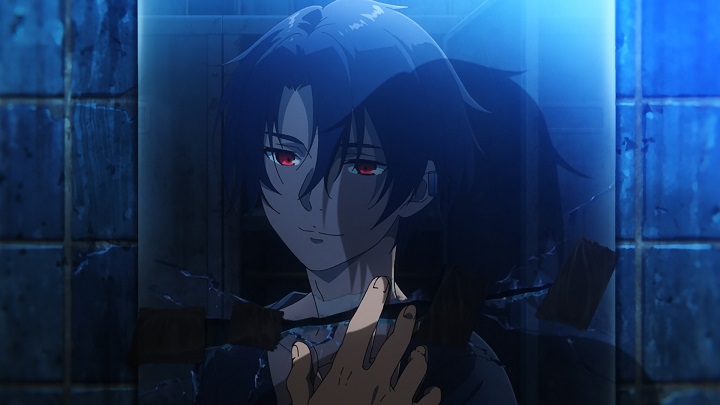
Narrative
This brings me to the narrative where Eighty Six starts to fall off. Not because its necessarily bad, if anything it executes an average “Sci-fi proxy war” story. But where it falls short is in the world-building and the way the characters fit into said world. Who leads the Alba? How do you get institutionalized racism on a national scale where there was none within 10 years? What does the rest of the world think about this, where are all the objectors, etc etc. Eighty Six does attempt to answer some of these questions. We learn about halfway through that our lead, Vladilena Milizé (henceforth called Lena), isn’t alone in her objections. Others feel the same way, they simply choose to either not speak or end up dying on the battlefield. It’s similar for the state of the world, etc. But it’s not enough to feel like a real world.
This is compounded by the fact that the first 3 episodes are, how do I say this… not good. Lena feels like a Starbucks-brand Liberal Arts student dragged out of our world and dropped into a fascist state. Busting into classrooms unannounced, preaching ethics to a bunch of kids and generally running around doing the Eighty Six equivalent of #FreeThe86. She doesn’t feel like she belongs in the world. Similarly the early episodes also have a number of… odd scenes between the 86ers. Stuff like a beach episode on a lake, or a weird cookout or odd dialogue. Eighty Six was clearly trying to ease us into the main story. To give us these Slice of Life moments with the characters so we can understand and connect with them. But they fall flat and typically just make for dull, unsatisfying or downright annoying episodes.
Eighty Six is also hurt by the eternal curse of “Sequelitis”. Now that may sound weird since this is the first season but answer me this: Knowing that there is a second season in the wings, that there are 10 Light Novels already published and looking at the poster, what do you think happens to Lena? Or the core of the 86ers? Eighty Six does a fine job of presenting the danger and treating the war like the monster it is. Plenty of characters die off-screen or are given ignoble deaths. But the core cast? With the knowledge of sequels to come I can’t say I ever felt they were in danger. All the way up to and including the cliffhanger ending, which having not read the novels, I still don’t believe to be true. Am I being a pessimist? Maybe. But only because anime has conditioned me as such.
This doesn’t mean there isn’t anything of value here of course. The editing that I mentioned previously manages to elevate a lot of these scenes. Taking characters and moments that I otherwise don’t engage with and, in the moment, making me care about them. For example in episode 10 there is a montage that manages to, single handedly, connect me with and make me care for that character. Similar events happen in throughout the second half! Once the episode is over however I start to see a lot of holes and issues with the narrative. But in the moment? While watching the episode? I was satisfied more often than not. And I think that experience while watching outweighs the bitter aftertaste for me. Just a bit.
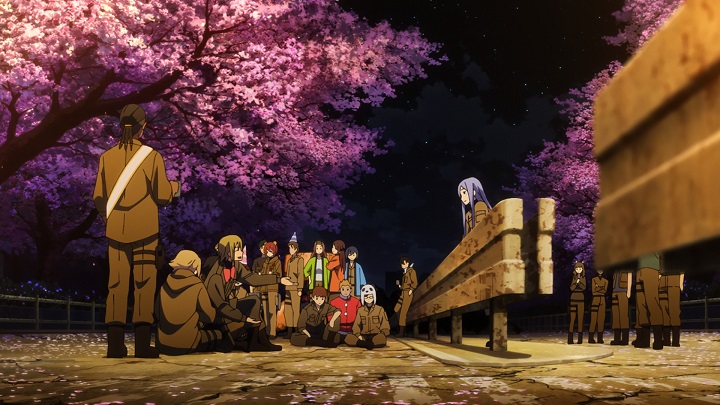
Characters
Moving on, with how large a place they took in the critique of the narrative how about we talk characters? And by characters I mean 2. Maybe 3 if you’re generous. I am of course talking about Major Vladilena Milizé and Shinei Nouzen AKA Undertaker. These two characters basically are Eighty Six. Every plot point, every scene, every major development, comes from these two. This isn’t to say other character’s don’t exist. Raiden, Theo, Kurena, Anju, Henrietta, etc. Eighty Six has a rather large cast in terms of “names on a chalkboard”. But I wouldn’t call many of them… developed. Of those there is no doubt that Henrietta gets the most attention but I couldn’t buy her story. Like many characters, it relied too heavily on the setting and the history of racism in the country. But as I talked about above, that racism is never properly explored or expanded.
Getting back to the lead characters, this is where I have to start dipping into spoiler territory. If you haven’t seen the show and don’t want their journey’s spoiled for you then don’t click this bit. The tl;dr is that both Lena and Undertaker’s story start off rather weak. But as Eighty Six begins explore who they are, where they are from and what they will do next they become much more interesting. Sadly, like the rest, they are held back by their lackluster setting. If you are alright with reading spoilers then read on!
And where better to begin than our lead woman, Vladilena Milizé. I mentioned it a bit above but Lena does not have the best of starts. In fact my impression of her character in the first few episodes was downright horrible. Not in the “This is a bad person” way, rather the “This character is terribly written” way. At the start of the story Lena doesn’t fit in at all. She feels like she hardly belongs in the world, as if she was plucked out of another story and shoved into this one. We can’t have a waifu with gasp actually terrible beliefs and a complex character arc… can we? The answer is no, we can’t. Eighty Six takes the easy way out by having Lena start the show already a decent person despite the culture she was raised in. Robbing her of what could be a great character arc.
What we get instead isn’t to bad though. In fact it’s like a soft-core version of what I mentioned above. Instead of coming around and realizing racism is bad, Eighty Six has Lena realize that she hasn’t actually been fighting all that hard against it. That for all her big words she didn’t truly view the 86ers as people. She cried over them, she waxed poetic, she complained about their conditions… but she never bothered to learn their names. To ask who they were. To her they were just statistics so she could keep the moral highroad. While this isn’t the arc I would have liked for her I can’t deny that I enjoyed what we got. Her growth over the season was good enough that I didn’t feel my time was wasted and the direction of the show elevated many of her best moments.
Similarly our male lead Shinei Nouzen is in much the same boat. Early on in the series he is your standard brooding bad boy. He existed primarily to be the quiet, stoic love interest. And while he doesn’t ever evolve much beyond that, at most giving us a few smiles later in the season, his arc does give us some of the more interesting world building within Eighty Six. Teaching us about the Legion, what life as an 86 is like, introducing the Shepherds to us, etc. The family drama between him and his brother was never particularly compelling to me as I never truly connected with either of them. But I can appreciate what their story brings to the world. As far as excuses for our lead to fight the Legion go, it’s not a bad one.
All in all I would say that Eighty Six’s characters were fine. Lena was perhaps the most compelling, as watered down as her arc is. Meanwhile the rest of the cast ranges from “good enough” to “who are you again?”. I’ve probably said it a few to many times at this point so I promise this is the last but Eighty Six’s story wouldn’t be near as good/acceptable as it is without the great direction that elevated it. Taking decent to downright dull moments and making them engaging. That alone is enough to change how a viewer perceives, how they remember, a story. So while the character’s aren’t great and I doubt I’ll care for them much in the future I can at least remember the good moments they gave me.
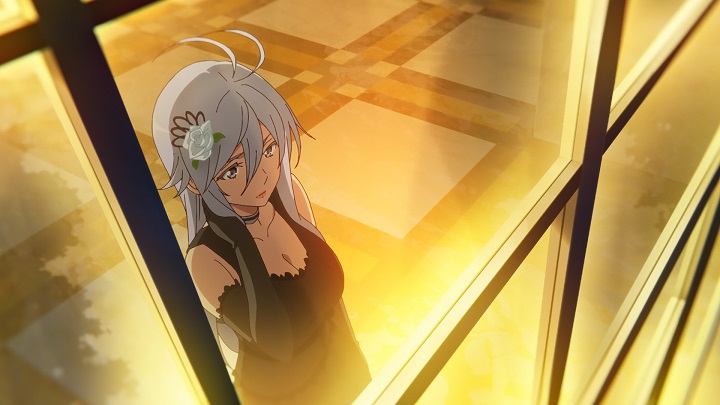
OST/Sound Design
Finally we come to the OST and Sound Design, the last “real” section of this review. Sadly as of writing this Eighty Six’s OST is not fully released so bear with me on the examples I have use. Disclaimers done with lets go!
So in case it wasn’t obvious the music of Eighty Six was primarily done by Hiroyuki Sawano. And even if you haven’t heard his name before there is zero chance you haven’t heard his music. The man has worked on everything from Attack on Titan and Thunderbolt Fantasy to Promare and Kill la Kill. Dude’s basically everywhere and he clearly does his job well. Eighty Six is no exception. The music is well composed, fit the series and the lyrical tracks are stellar. I particularly like “Hands Up to the Sky” and “The Answer“, both sung by Laco, as well as the insert song “Two Worlds Apart“. And while his music can often sound similar to itself, such as how Yuki Kaijura has been repeating the same motif for years now, you can’t deny how cleanly it’s put together. It’s a solid, energetic soundtrack that Sawano is known for.
As for the sound design… I can’t say I found it that memorable. Don’t get me wrong, it’s matched well to the scenes. The way Eighty Six cuts on sound cues such as gunshots, broken glass or fireworks is great. I don’t want to diminish that as the way sounds are used within a series is still very important. However it feels like Eighty Six is using the same sounds as everyone else, just better. I was never “wowed” by it’s choices like I was with Eizouken’s walking or Ping Pong the Animation’s ridiculously snappy ball impacts. That said, I don’t want to be to harsh on Eighty Six here. I’m not a sound engineer, I’m not a professional. All I know is that Eighty Six’s sound never took me out of a moment or scene and the sounds themselves were used exceptionally well. And that’s good enough for me.
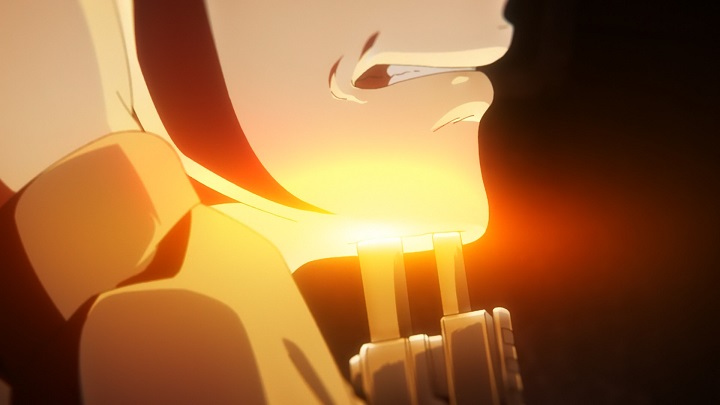
Babies First Genocide
This is the bit where I talk about the ending cliffhanger, the issues of Eighty Six’s setting and basically have an unformatted, uncontrolled discussion about the show. This section does not effect the final score in any way and can be safely skipped if that’s not your thing. But if you want to hear my unfiltered personal thoughts and don’t care about massive spoilers well… read on.
I’ve talked a lot about how the characters and story suffer because of the setting. But I haven’t talked about why I feel that way. And the simple answer is: I don’t believe it. The racism, the genocide, the justification, the telepathy, oh the telepathy. None of it works. For the racism and genocide the issue is actually rather straight forward, it’s the timespan. I don’t believe that so much could happen, that society could change and people forget so much, in just 10 years. Of course the closest comparison is Nazi Germany which lasted about 12 years yet the results were very different. People didn’t just “forget”, it was an ongoing event for over a decade. Eighty Six attempts to explain this away, to justify it through military politics, the publics willful ignorance and restricting access to the outside world via the Legion. But it wasn’t enough for me.
This one decision on the timeline, to make this happen within the lifetime of our leads, bleeds through the rest of the story. Affecting characters like Henrietta and really the entire Alba nation. I mentioned that Eighty Six attempts to explain these problems, how they are trying to kill off all the 86ers so that the world won’t know of their genocide, and in the moment you think “That sounds believable”. But the moment you start to think about it the reasoning falls apart. 10 years isn’t enough time to forget an entire race existed. That’s not how you run a sustainable war effort. If a single squadron can fight off the Legion for months then imagine what they could do with proper artillery and logistical support, you could end the war! But that’s not what Eighty Six wants. And so it kind of falls apart.
This brings me to Shin and his whole “telepathy” bit. And you know what? I’m not actually upset at the “hearing the voices of the dead” stuff. I actually think that’s pretty cool. The idea that the Legion are using psychological warfare by projecting the voices of those whose head’s they took is freaking metal. It adds a level of menace and intent to the Legion that they didn’t have before and explains why previous Handlers couldn’t… handle Shin. But then Eighty Six goes and ruins it by having it be “magic”. That it isn’t intentional by the Legion, they aren’t projecting it over the Para-Raids that were on the heads the stole. No, Shin and his family are just special and able to listen to each others thoughts and emotions, becoming the base for the single greatest technological advancement in the setting. Because… why not?
And that’s sort of the crux of my issue with Shin. Eighty Six just had to make him special. Not just in the “Super soldier” kind of way but a “Chosen One” sort of manner as well. Had Eighty Six approached him as just another 86er, if a particularly skilled one, I could connect to him a lot more. I could fear for his safety, I could wonder if he would come back alive, I could feel what Lena feels. As it is now though I don’t feel any of that. And the cliffhanger in episode 11? I don’t believe it for a moment. Not just because of his “special” status but also because there’s 10 Light Novels and another season already announced.
Basically my thoughts on Eighty Six boil down to this: It tried to do a war story but rushed all the important bits. The setting? In 10 years it went from democracy to totalitarian ethnic state. The war? Somehow held back a self-perpetuating legion of robots with slave soldiers while not providing them adequate support so they die. Our leads? Special by birth, either because of mind-reading powers or being born to the one high ranking bleeding heart in the military. And while the stellar direction helps all of the big moments still land, still connect in the moment, there’s still that bitter after taste. The knowledge that none of it actually works. I enjoyed the dinner not because of the quality of the meat but because the chef simply knows how to cook a bomb ass steak, regardless of what he’s given. Imagine if the chef had something better?
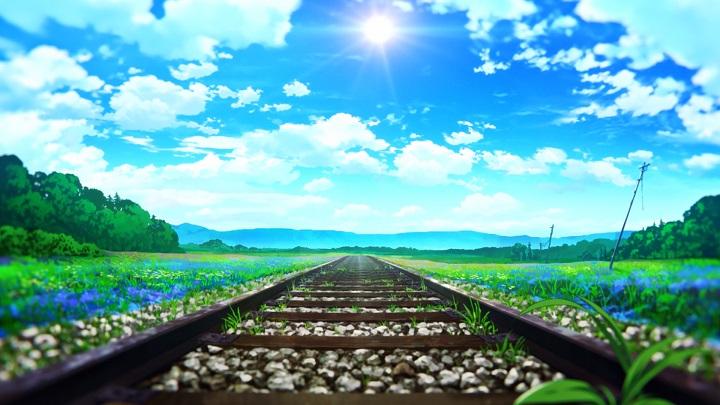
Conclusion
So 3000+ words later where does that leave us? When all is said and done I enjoyed Eighty Six. It’s not perfect, it has a lot of problems and it’s writing certainly belays its Light Novel origins. But the visual presentation was such that even mediocre writing such as this became engaging. Eighty Six stands as a testament to the power of a skilled Director. The power to take dull and uninteresting stories and make them good. Because that Eighty Six was for me. I don’t care about Raiden or Henrietta, Anju or Fido. I don’t care about the Alba or the 86ers, I would never read this book. But when the big scenes came I was engaged anyways. Because Toshimasa Ishii is a god damn magician and I’m going to watch his career with great interest. Every show he’s on, I will be there. Including Eighty Six’s second season.

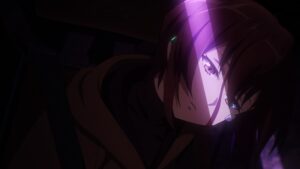


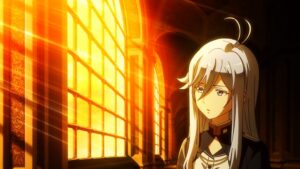
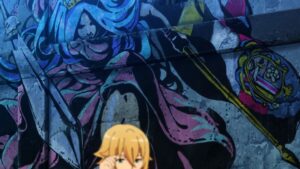
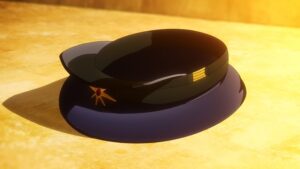
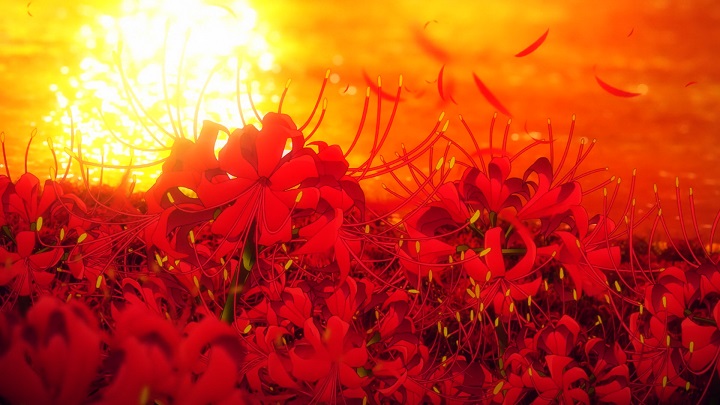
“How do you get institutionalized racism on a national scale where there was none within 10 years? … I don’t believe that so much could happen, that society could change and people forget so much, in just 10 years.”
I agree with most of your complaints about the world building of 86 (it is often very simplistic and over the top, which can make the world feel like a caricature of real-world genocide), but the criticism that its world “changed too fast” doesn’t seem entirely fair to me. I mean, you see essentially the same pattern throughout history: first you have relatively nonviolent tension between different ethnic groups, then there’s a spark that transforms prejudice into outright hostility, and that eventually leads to full-on genocide. For example, before the Nazis took power, though there certainly was prejudice towards Jews, many of them nevertheless had achieved a high social status in business or culture; but then the Nazis built on widespread prejudice towards Jews to make them into scapegoats for all that went wrong in Germany, and the rest is history. Similarly, in Rwanda people suddenly started killing neighbors they had lived next to relatively peacefully for many years; in Myanmar the army started massacring Rohingya after some attacks on them; and so on and so forth. And it isn’t all that hard to imagine that San Magnolia followed a similar pattern, with most Alba looking down on other ethnic groups and treating them as second-class citizens, and the war against the Legion then becoming the “spark” that conveniently transformed such prejudice into contempt that could then justify using them as cannon fodder (while also getting rid of a potential threat).
By the way, on another note: another criticism of the narrative that I personally had is that its storytelling sometimes felt a little … disjointed and rushed to me, in the sense that what we see are basically a few snapshots out of the lives of the characters that are pretty interesting but – with the exception of Shin and Lena – rarely have much impact. For example, many of the deaths in the Spearhead Squadron left me completely cold because we barely knew the relevant characters before they were already killed off; the battles often lacked any sort of context that could give them meaning; and more generally, aside from Shin and Lena, the world and its characters just felt really thin. If this story had been spread out over two cours and we’d have had time to explore the world and its inhabitants in more depth, the story would probably have been far more emotionally compelling to me, and the world far more alive. That being said, the more fast-paced story that we got also has its benefits, of course: at the very least, 86 rarely left me bored, and Shin and Lena’s core arcs were very tightly paced.
I’ve read this review a year ago or so, and now I’m still glad I’m not the only one who has mixed feelings with one of the critically acclaimed LN stories. When it first premiered, I was kind of dedicated watching it weekly due to every fan of the series hyping up saying those who have yet to know about it will like the anime version so much.
Unfortunately, I’m unable to like it sincerely, but that doesn’t mean I disapprove this anime getting a season renewal because at least this isn’t a wish fulfilment story where almost 90% LN stories that exist so far are made up of bland harem isekai or toxic male-oriented romcom stories.
Majority of what you said here is the same as how I felt about fan fave character Lena. It’s expected that she must act this way and that a comment on your review of 2nd episode [Spearhead] also reflects how I got put of with the author unfortunately including supernatural powers in the male protagonist that semi-emphasize “super special teenagers saving the world and falling in love” plotline in disguise.
Finally, there were semi-romanticisation of believing they’re doing for their pride reveals a subconscious egotistical mindset even if it’s a mild/subtle version and even though we should be showing sympathy to them that they’ve no choice button think that way; otherwise they’ll go spending their short-term lives like that one squad whom constantly lashed out Lena.
I hope that when I get to second cour that the late Spearhead members are exposed to be written as “Unintentionally Unsympathetic” as they constantly look up to Shin to guide them physically & spiritually when they should come to terms that doing so is another way to be selfish. I hoped to see their dependency on their leader is revealed as that, and that also may make me be convinced that the scriptwriting is gonna change its very black-and-white narrative.